Types of Warehouses: Choosing the Right Storage Solution for Your Business
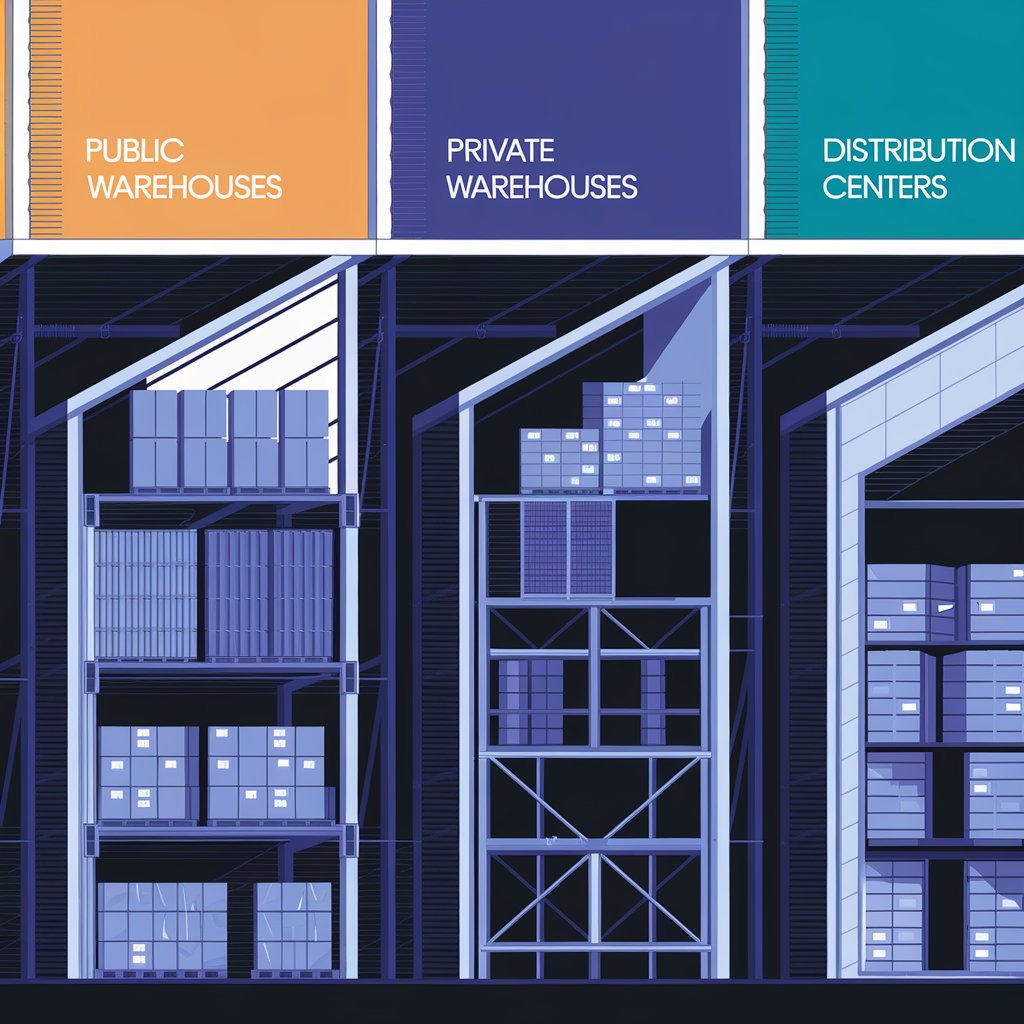
Why Choosing the Right Warehouse Matters
Before we jump into the different types of warehouses, let’s take a moment to consider why this decision is so important:
- Efficiency: The right warehouse can streamline your operations, saving time and money.
- Scalability: As your business grows, your storage needs will change. Picking the right warehouse type now can save headaches later.
- Cost-effectiveness: Different warehouse types come with varying price tags. Choosing wisely can help you optimize your budget.
- Inventory management: The layout and features of your warehouse directly impact how well you can manage your stock.
- Customer satisfaction: Faster order fulfillment and better inventory control lead to happier customers.
Now that we understand the importance of this decision, let’s explore the main types of warehouses available to businesses today.
1. Public Warehouses
Public warehouses are the Swiss Army knives of the storage world. They’re versatile, accessible, and perfect for businesses that need flexibility.
Key features:
- Rented space on a short-term basis
- Shared facility with other businesses
- Professional management and security
Ideal for:
- Seasonal businesses
- Startups testing the waters
- Companies with fluctuating inventory levels
Pros:
- Lower upfront costs
- Flexible terms
- Access to professional warehouse management
Cons:
- Less control over operations
- Potential for higher long-term costs
- Limited customization options
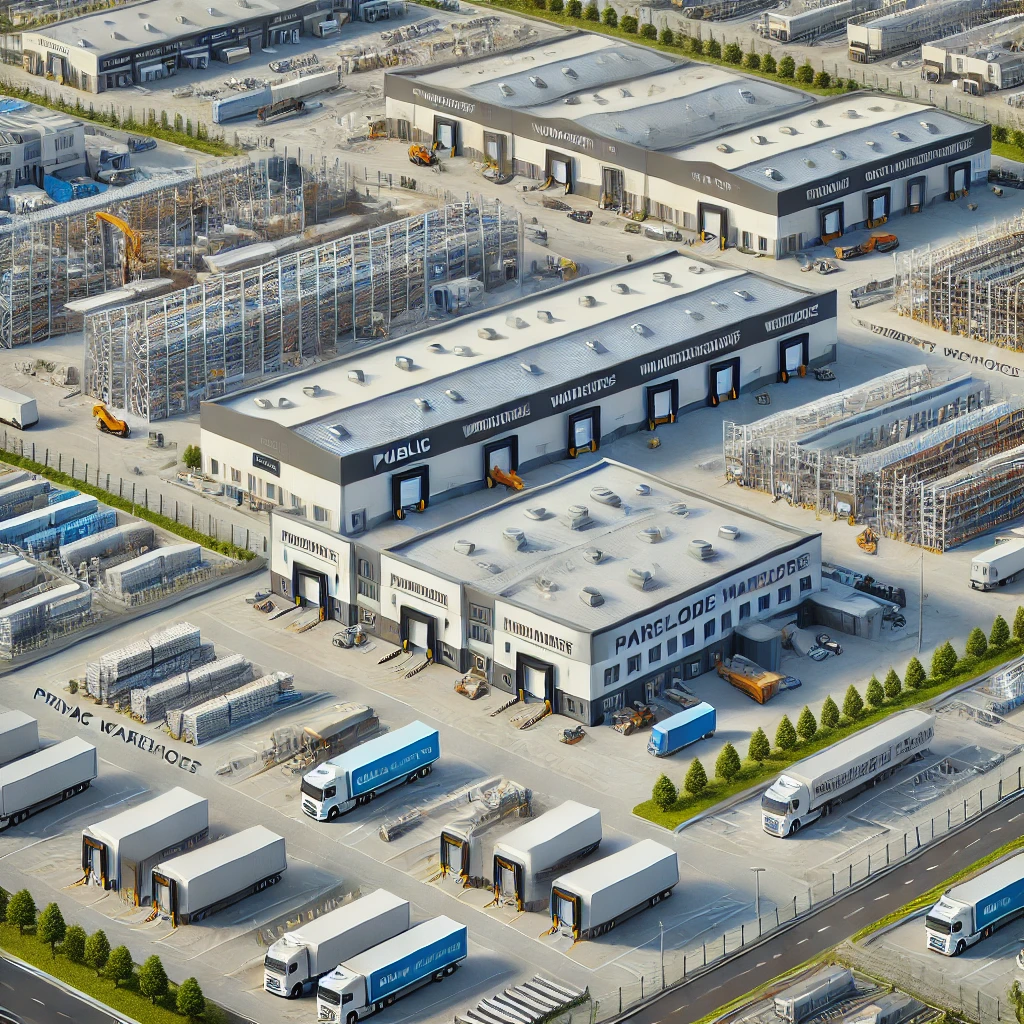
2. Private Warehouses
If you’re looking for a space to call your own, private warehouses might be just the ticket. These are facilities owned and operated by a single company.
Key features:
- Full control over operations and layout
- Customizable to specific business needs
- Long-term investment
Ideal for:
- Large companies with stable inventory levels
- Businesses with unique storage requirements
- Organizations prioritizing brand image and security
Pros:
- Complete control over operations
- Potential for long-term cost savings
- Customization to fit specific needs
Cons:
- High initial investment
- Responsibility for all aspects of management
- Less flexibility for scaling up or down
3. Distribution Centers
Distribution centers are the speedsters of the warehouse world, focused on getting products out the door as quickly as possible.
Key features:
- Emphasis on fast turnaround
- Strategic location near transportation hubs
- Advanced inventory management systems
Ideal for:
- E-commerce businesses
- Companies with time-sensitive products
- Businesses serving a wide geographic area
Pros:
- Faster order fulfillment
- Efficient inventory management
- Strategic positioning for quick distribution
Cons:
- Higher operational costs
- Complex logistics management
- Potential for overreliance on technology
4. Climate-Controlled Warehouses
Some products need a little extra TLC. That’s where climate-controlled warehouses come in, offering a stable environment for sensitive items.
Key features:
- Temperature and humidity control
- Specialized storage equipment
- Enhanced security measures
Ideal for:
- Pharmaceutical companies
- Food and beverage businesses
- Electronics manufacturers
Pros:
- Protection for sensitive products
- Compliance with industry regulations
- Extended shelf life for perishable goods
Cons:
- Higher operational costs
- Specialized equipment and maintenance
- Limited availability in some areas
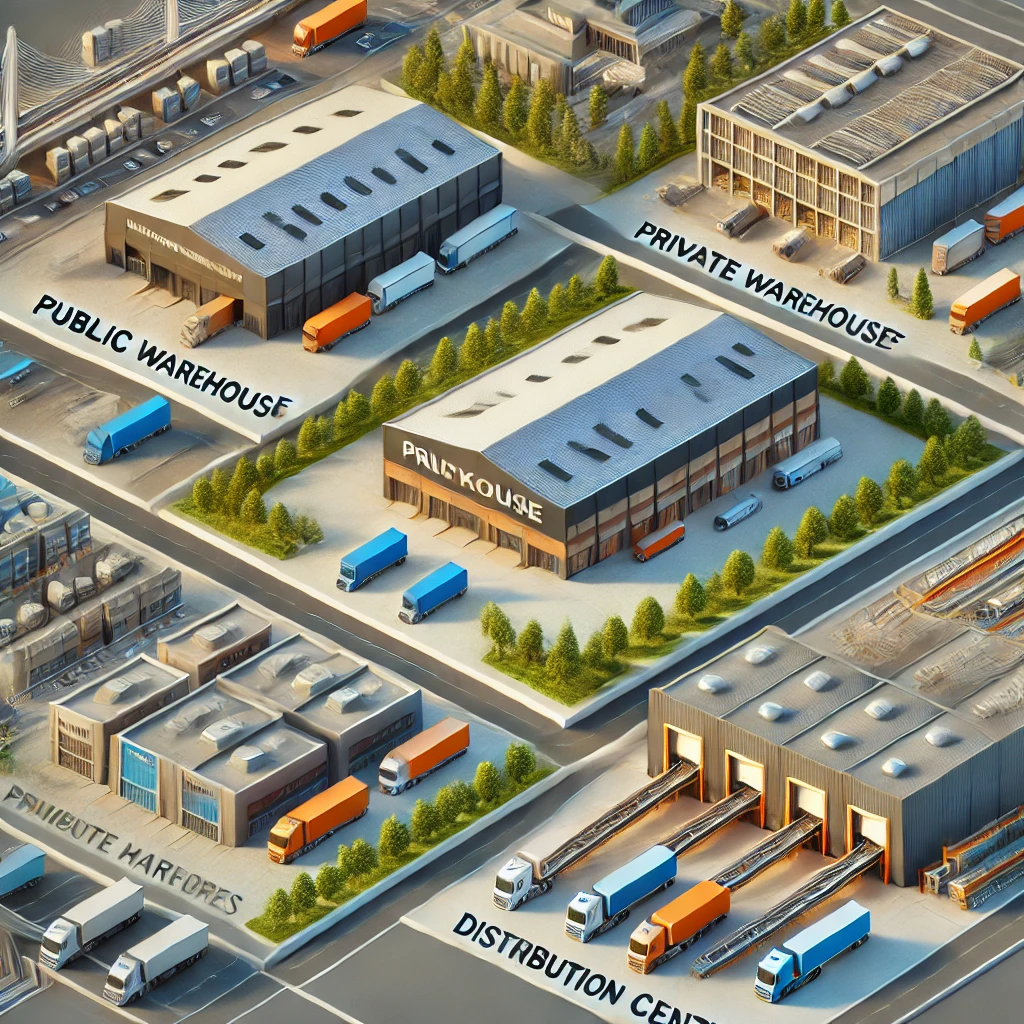
5. Automated Warehouses
Welcome to the future of storage! Automated warehouses use cutting-edge technology to maximize efficiency and accuracy.
Key features:
- Robotic storage and retrieval systems
- Advanced inventory tracking
- Minimal human intervention
Ideal for:
- High-volume businesses
- Companies prioritizing accuracy and speed
- Tech-savvy organizations
Pros:
- Increased efficiency and accuracy
- Reduced labor costs
- 24/7 operation capability
Cons:
- High initial investment
- Dependence on technology
- Potential challenges with customization
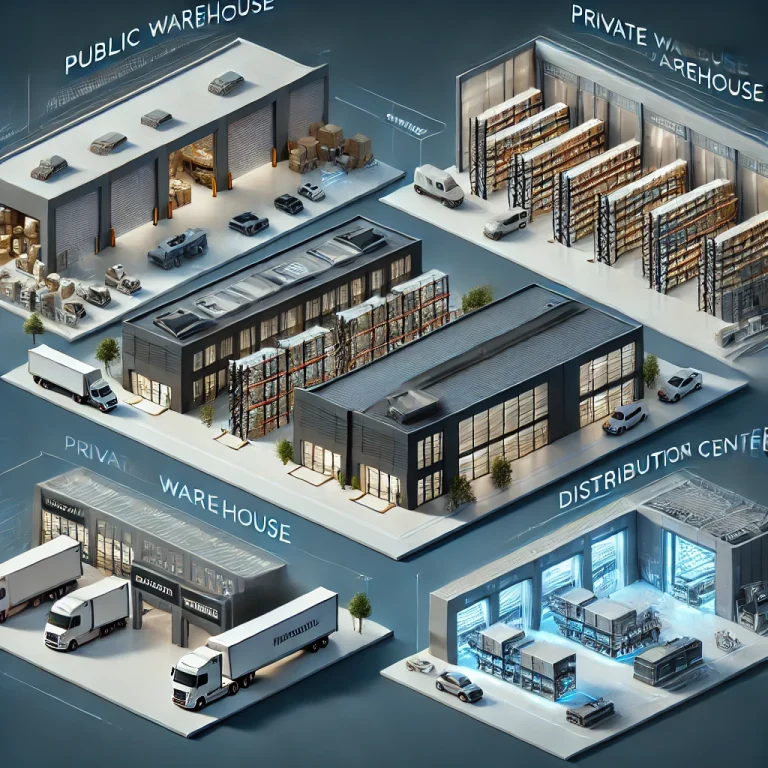
6. Bonded Warehouses
For businesses dealing with international trade, bonded warehouses offer a solution to navigate customs and duties.
Key features:
- Secure storage for goods pending customs clearance
- Delayed payment of import duties
- Strict government oversight
Ideal for:
- Importers and exporters
- Businesses in the alcohol and tobacco industries
- Companies looking to defer tax payments
Pros:
- Deferred payment of duties and taxes
- Secure storage for high-value goods
- Potential for re-exporting without paying duties
Cons:
- Complex regulatory requirements
- Limited locations
- Potential for additional paperwork and inspections
Making the Right Choice for Your Business
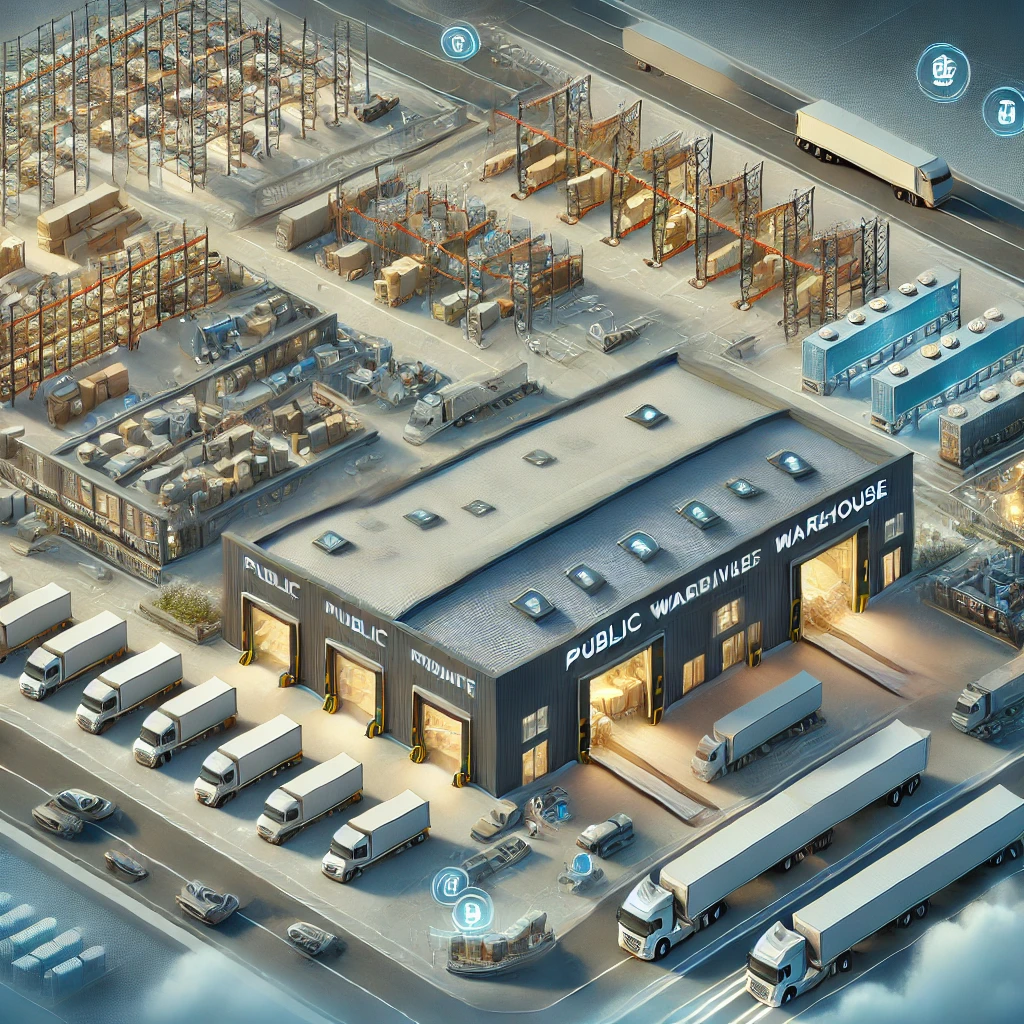
Now that we’ve explored the various types of warehouses, how do you choose the right one for your business? Here are some key factors to consider:
- Budget: What can your business afford in terms of upfront costs and ongoing expenses?
- Inventory volume and turnover: How much stock do you need to store, and how quickly does it move?
- Product requirements: Do your goods need special handling or climate control?
- Location: Where are your customers, and how quickly do you need to reach them?
- Growth projections: How might your storage needs change in the coming years?
- Operational control: How much oversight do you want over warehouse operations?
By carefully considering these factors and aligning them with the characteristics of each warehouse type, you’ll be well on your way to finding the perfect storage solution for your business.
Conclusion: Your Path to Warehouse Wisdom
Choosing the right type of warehouse is a crucial decision that can significantly impact your business’s efficiency, costs, and customer satisfaction. By understanding the unique features and benefits of each warehouse type – from public and private facilities to distribution centers and automated marvels – you’re now equipped to make an informed choice.
Remember, there’s no one-size-fits-all solution. The best warehouse for your business depends on your specific needs, goals, and circumstances. Don’t be afraid to seek expert advice or even consider a hybrid approach that combines elements from different warehouse types.
As you embark on your warehouse selection journey, keep in mind that flexibility is key. Your storage needs may evolve as your business grows, so choose a solution that can adapt alongside you.
Are you ready to revolutionize your storage strategy? Take the knowledge you’ve gained here and start exploring your options. Your perfect warehouse is out there – it’s time to find it and watch your business soar to new heights!
